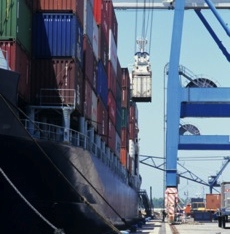
CFIA proposes import controls
By Food in Canada staff
Exporting & Importing Food Safety Regulation Health & Wellness Imports public health
The Canadian Food Inspection Agency (CFIA) is proposing new regulations for importers in an effort “to support a modern approach to food safety.”

So explained Alison Pinsent at the Canadian Association of Importers and Exporters (IE Canada) 79th Annual Conference, Trade Show and CATIE Awards. The event took place from October 18 to 20 in Toronto.
Pinsent is acting director of the Imported and Manufactured Food Division, Food Safety and Consumer Protection Directorate of the CFIA.
She explained that the CFIA, as a commitment to the Food and Consumer Safety Action Plan (FCSAP), is developing a regulatory proposal intended to enhance the safety of imported Non-federally Registered Sector (NFRS) products offered for sale in Canada.
NFRS products account for about 70 per cent of food products sold in Canada. Those products can include baked goods, eggs, snacks, confectionery, cheese, vegetables, fish, spreads and meats.
What the CFIA is proposing
The CFIA is proposing to enhance import controls in the NFRS by introducing new regulations under the Canada Agricultural Products Act (CAPA). The focus will be to identify and control risks and hazards before they become a larger problem.
The new regulation would include:
• General provisions regarding food safety and record keeping for Imported Food Sector (IFS) products; and
• Provisions for the licensing of importers of IFS products.
IFS products are NFRS products that meet the definition of “agricultural product” in CAPA and that are imported. Agricultural product refers to any food or drink that is partially or wholly derived from a plant or animal as defined in CAPA.
The general provisions will mean importers can import products only if they are:
• not contaminated;
• edible;
• prepared, preserved, packaged or stored in a sanitary manner; and
• meet all other requirements of the Food and Drugs Act and Food and Drug Regulations and the Consumer Packaging and Labelling Act and Regulations.
Other general provisions will mean that:
• anyone who imports an IFS product will be required to develop, implement and maintain a written recall plan;
• anyone who imports an IFS product would be required to maintain records at an address in Canada for at least three years or one year after the shelf life of the product, whichever is longer;
• anyone who imports an IFS product would be required to notify the CFIA within 24 hours of becoming aware that an IFS product that is on the market might pose a risk to the public;
• anyone who imports an IFS product would be required to have a license in order to import such products; and
• anyone applying for an IFS import license would be required to develop, implement and maintain a written preventive food safety control system.
For IFS import licenses, importers bringing IFS products into Canada will be required to have a license and prove that they have a preventive food safety control system in place.
The CFIA is also considering user fees, said Pinsent. And importers will be required to renew the license every two years.
Coming up
Pinsent said that the general provisions will take effect once the regulations are published in the Canada Gazette, Part II.
And the licensing provisions will take effect two years after the regulations are published.
The CFIA will be drafting the regulations over the winter and is looking to publish the regulations in Canada Gazette, Part I next year, with final publication in Part II in 2011.
Pinsent said that overall consumers “do support a licensing system but are concerned that prices will go up.”
Print this page